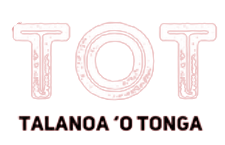The Pacifika Medical Association (PMA) has partnered with Australia to improve mental health and wellbeing in Tonga and Vanuatu.
The Ngalu Fānifo project aims to strengthen the capacity of health and community providers to provide mental health care.
PMA president Dr Kiki Maoate said this project will follow on from the work PMA emergency response teams – or PACMAT – have delivered in both Tonga and Vanuatu.
PACMAT was deployed following the Hunga Tonga-Hunga Ha’apai volcanic eruption and tsunami and following Cyclones Kevin and Judy in Vanuatu.
Vanuatu’s Ministry of Health Curative & Hospital Services director, Dr Sereana Natuman, said the Ngalu Fānifo project represents “a significant step forward in our commitment to enhancing mental health services across the country”.
“We are confident that the Ngalu Fānifo initiative will lay the groundwork for a sustainable and community-centered approach to mental health in Vanuatu, ultimately leading to healthier and more resilient communities.”
PMA chief executive Debbie Sorensen said their Ngalu Fānifo team have just returned from their inception visits to both countries.
“The response from community through to ministerial level has been incredibly positive, stressing the need for mental health and wellbeing support that is family-centered, community-led and culturally-anchored.
“PMA will work in collaboration with health ministries, health providers, and community and faith-based NGOs (non-government organisations) in Tonga and Vanuatu, to co-design training pathways, and support the implementation of new, sustainable mental health models of care.”
The World Health Organisation (WHO)’s Regional Framework for the Future of Mental Health in the Western Pacific 2023-2030 said over 215 million people suffer from mental health conditions in the Western Pacific Region.
It quoted the 2019 Global Burden of Disease report, which said disability-adjusted life years (DALYs) attributed to anxiety and depressive disorders, schizophrenia, Alzheimer’s disease and other forms of dementia, and self-harm increased significantly in the region from 1990 to 2019.
The Framework said since the release of the 2013-2020 action plan, some progress in advancing the mental health agenda had been observed.
“As of 2020, all member states in the region who responded to the Mental Health Atlas survey had a stand-alone or integrated mental health policy or plan.
“However, the transition towards community-based care remains disappointingly slow.
“Mental health promotion and prevention programmes and activities have increased, but it is unclear whether this increase has translated into concrete impact.”
Source: RNZ




